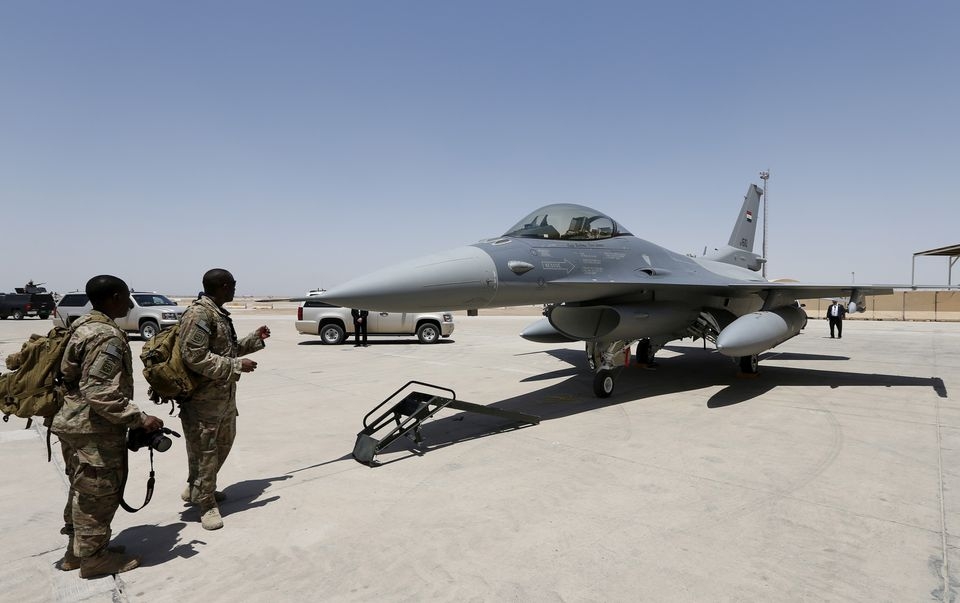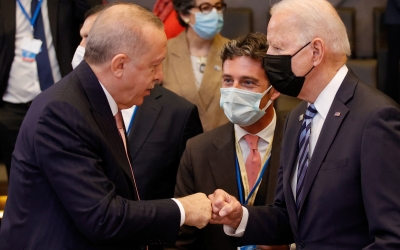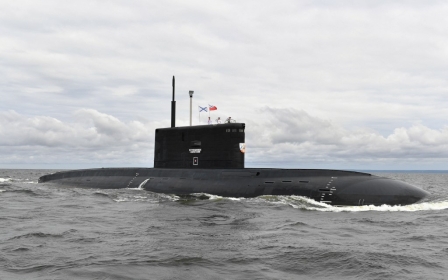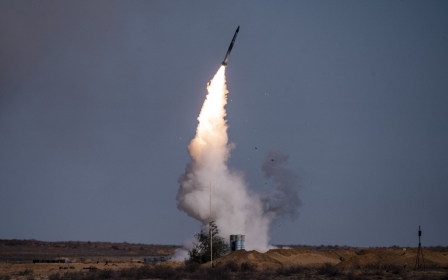US encouraged Turkey to modernise fleet of F-16 fighter jets

The US government encouraged Turkey to request the purchase of a slew of new Lockheed Martin-made Viper class F-16 fighter jets, as well as modernisation kits for its existing warplanes, two sources familiar with the issue told Middle East Eye.
Turkey sent a letter of request on 40 F-16s and 80 modernisation kits last month after getting kicked out of the F-35 programme more than two years ago due to its Russian missile defence system S-400s.
'The US officials never told us that the modernisation of F-16 was something out of reach'
- Turkish official
The Turkish public learned of the letter through an obscure Greek defence website rather than the Turkish officials or sources.
The move surprised many since there is a significant amount of ongoing animosity in the US Congress towards Ankara for its regional policies, and Turkey is currently subject to US CAATSA sanctions following its S-400 purchase.
In any case, Congressional authorisation is a must due to the size of the request, which is believed to be around $6bn.
New MEE newsletter: Jerusalem Dispatch
Sign up to get the latest insights and analysis on Israel-Palestine, alongside Turkey Unpacked and other MEE newsletters
The Turkish military had expected to acquire fifth-generation F-35 fighter jets from the US. Once Ankara was excluded from that programme, it had to move to update its rapidly ageing F-16 fleet.

It has also launched several of its own projects, like the TF-X currently being developed by Turkish Aerospace Industries and the British arms company BAE Systems, but it will take some time for these to get to a place where they can be serially produced.
One Turkish official told MEE that Turkey’s ageing F-16s fleet, if not restored, could put not only the security of Ankara’s but also Nato’s southern flank at risk.
“The US officials never told us that the modernisation of F-16 was something out of reach,” the official said. “We believe Washington would be mindful of the Turkish and Greek balance as well,” referring to the Greek purchase of French warplanes.
A second Turkish official said the whole process was progressing really fast and that the administration of US President Joe Biden had no issues with the request to update the F-16s. “However, the US Congress is another matter,” the official said.
Deals with Russia
One of the fundamental arguments that the Biden administration may use to convince US lawmakers is the possibility of Turkey acquiring more Russian weapons, including aircraft.
“Maybe the United States won't maintain the F-16 programme,” Turkish President Recep Tayyip Erdogan told CBS News in September. “I don't have such a guarantee that the Americans will continue with the F-16 provision. If that will be interrupted, then we will be forced to take other measures.”
After meeting his Russian counterpart Vladimir Putin in Sochi last month, Erdogan said that both countries were likely to work on the joint production of jets or jet engines.
However, there are military concerns as well. In a memo on the potential implications for the US of the S-400 deal between Russia and Turkey, the Pentagon counted F-16s among the systems that could be impacted by Russian espionage. Some believe the Pentagon will need to understand whether the sensors used with F-16s could be jeopardised with S-400s, since F-35s also use them.
Officials said Turkey asked to purchase 40 new F-16s because the oldest version of the jets the Turkish military already uses are too old to be modernised.
Some Washington-based lobbyist NGOs, including Armenian, Greek, Christian, and right-wing foreign policy groups, have already begun a campaign dubbed “No Jets to Turkey” to pressure the administration and Congress to stop the process.
Turkish officials say that if the US Congress blocks the sale, Turkey will be left vulnerable and relations between Washington and Ankara will be further destabilised.
Middle East Eye delivers independent and unrivalled coverage and analysis of the Middle East, North Africa and beyond. To learn more about republishing this content and the associated fees, please fill out this form. More about MEE can be found here.




